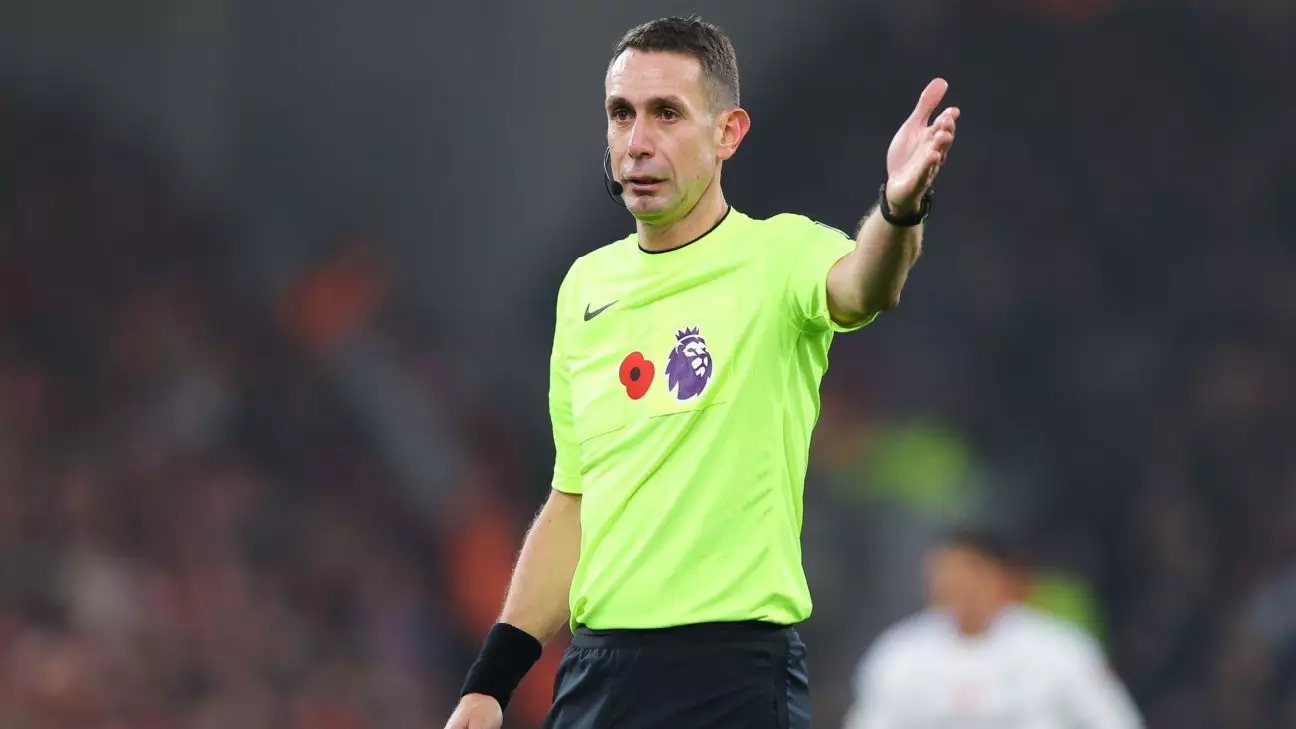The footballing world was shaken this week with the announcement of Premier League referee David Coote’s termination from his position at PGMOL (Professional Game Match Officials Limited). The organization cited a “serious breach” of contract, a severe accusation for anyone in such an authoritative role. The string of incidents leading to Coote’s eventual dismissal highlights a substantial concern regarding referee accountability and professional conduct in sports officiating.
The controversy erupted when a leaked video surfaced showing Coote engaging in a highly derogatory monologue aimed at Liverpool and its former manager, Jürgen Klopp, employing strong expletives. Furthermore, Coote is currently under scrutiny from UEFA after a report emerged involving him allegedly using a white powder while on duty at a high-profile event, Euro 2024. These revelations not only paint a troubling picture of his professionalism but also raise questions about the stringent measures in place for maintaining referee integrity.
The PGMOL’s swift response, terminating Coote’s employment following an in-depth investigation, underscores the organization’s commitment to uphold ethical standards. They stated that “Coote’s actions were found to be in serious breach,” calling into question the decorum expected of officials operating at the highest levels of competitive football.
Coote’s debacle is not merely a reflection of personal failure; it serves as a reminder of the intense scrutiny referees face within the football landscape. The decision to sack him reflects a shift towards greater accountability in officiating—an essential evolution in a sport marred by controversial decisions and flawed officiating. Sources indicate that Coote’s dismissal was largely influenced by a broader pattern of conduct deemed unacceptable, rather than the individual incidents themselves.
Additionally, the investigation into an alleged discussion regarding card issuance before a match adds another layer of concern. This illustrates how even idle communication can be misinterpreted and how his judgement was under constant examination.
The fallout from Coote’s termination extends beyond his career; it prompts important discussions regarding referee training and the psychological support offered to officials who operate in high-pressure environments. PGMOL emphasized their commitment to support Coote despite his actions, which may indicate an awareness of the mental strain referees endure, often exacerbated by public and media scrutiny.
The option for Coote to appeal his termination also opens a window for further discussion; it raises questions about fairness, second chances, and the broader implications of disciplinary measures within sports organizations. Will referees be afforded the same opportunities for redemption that players often receive, or is the expectation placed on them uniquely high?
David Coote’s sacking represents more than just an individual’s downfall; it signifies a critical moment for the sports officiating community, advocating for stricter adherence to professional norms. As the world of football continues to evolve, paramount importance must be placed on establishing a culture of accountability among match officials. This critical reflection on Coote’s conduct and the subsequent ramifications serve as a clarion call for reform in how both current and future referees engage with the responsibilities of their roles in the highly scrutinized arena of competitive sports.

Leave a Reply